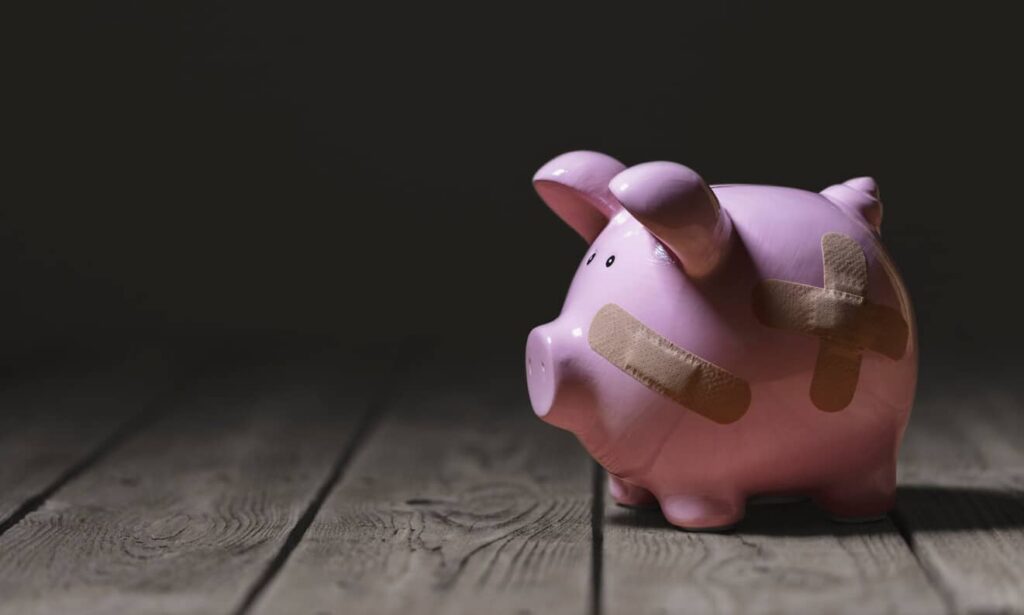What Are Common Nevada Bankruptcy Exemptions?
Getting successful results for your Nevada bankruptcy means knowing what exemptions exist and using them to your advantage. It’s essential to understand the exemptions to know what to expect in your bankruptcy proceeding.
The Nevada bankruptcy lawyers at Deluca & Associates answer all your questions about common bankruptcy exemptions.
About Bankruptcy Exemptions

What Is a Bankruptcy Exemption?
A bankruptcy exemption is a law that protects your property when filing for bankruptcy. It is personal property that an individual filing for bankruptcy is allowed to keep. The debtor must identify and claim exemptions as part of their filing documents.
Are Bankruptcy Exemptions the Same in Every State?
Bankruptcy exemptions vary from state to state. You must meet minimum residency requirements before filing for bankruptcy and claiming exemptions in a particular state.
For example, you must live in Nevada for more than 180 days to file and at least 730 days to use Nevada exemptions. Compared to other states, Nevada is generous. Our lawyers can help you evaluate your circumstances and understand your options for claiming the best bankruptcy exemptions for your situation.
If you’re dealing with debt, contact DeLuca & Associates for a FREE consultation to see if bankruptcy may be an option.
Nevada Bankruptcy Exemption Overview
What Is the Law for Nevada Bankruptcy Exemptions?
Most Nevada bankruptcy exemptions are listed in Nevada Revised Statutes § 21.0901.
What Is the Bankruptcy Homestead Exemption Nevada Law?
The Nevada bankruptcy homestead exemption protects home equity up to $605,000. The debtor must declare the homestead before starting the bankruptcy proceeding. (N.R.S. § 21.090(1)(l))
Is There a Bankruptcy Exemption for Tenants?
As a tenant, your deposit to rent or lease a dwelling is exempt, except if the landlord needs it to enforce your lease contract. (N.R.S. § 21.090(1)(n))
What Is the Nevada Motor Vehicle Bankruptcy Exemption?
The Nevada motor vehicle bankruptcy exemption protects debtor equity up to $15,000. There is no limit if the vehicle is equipped to assist a person with a disability. (N.R.S. § 21.090(1)(f),(p))
Can You Keep Household Goods and Appliances in a Nevada Bankruptcy?
Nevada law allows you to keep household appliances, furniture, and home goods up to $12,000 in value. The person filing may choose which items to keep. (N.R.S. § 21.090(1)(b))
Personal Property in Nevada Bankruptcies
What Are the Nevada Personal Property Exemptions?
Nevada personal property exemptions include:
- Books, art, musical instruments, and jewelry up to $5,000
- Household goods, furnishings, electronics, clothing, personal effects, and yard equipment up to $12,000
- Farm trucks, equipment, and supplies up to $4,500
- Professional equipment, tools, and instruments up to $10,000
- Mining or prospecting implements and appliances up to $4,500
- A motor vehicle up to $15,000 in equity, or no limit if it is equipped for a person with a disability
- Fire department-issued vehicles and implements
- One gun or other arms required by law
- Collections of minerals, art, and paleontological remains
Additional protections may apply to public bodies, including courthouses, jails, public offices, and buildings. (N.R.S. § 21.090(1), § 21.1002)
Are There Medical Exemptions in Nevada Bankruptcy?
Prosthesis and equipment prescribed by a physician or dentist are exempt in bankruptcy cases. The items must be prescribed for the debtor or their dependent. (N.R.S. § 21.090(1)(q))
Nevada Bankruptcy Income Exemptions

What Are the Nevada Bankruptcy Income Exemptions?
A person filing for bankruptcy may keep 82% of weekly disposable earnings if the weekly wage is $770 or less, 75% of weekly disposable income if more than $770, or 50 times the federal minimum wage, whichever is more.
See N.R.S. § 21.090(1)(g) for definitions of earnings and disposable earnings.
Is Life Insurance Exempt in Nevada?
Nevada bankruptcy law exempts all money, benefits, and immunities received from life insurance. (N.R.S. § 21.090(1)(k))
It’s not too late to get a fresh start. Schedule a FREE consultation with our Nevada bankruptcy lawyer today.
Are Child Support and Spousal Support Payments Exempt in Bankruptcy?
Child and spousal support payments are exempted in bankruptcy. There must be a court order for the amounts exempt. Arrearages to be paid may be included. (N.R.S. § 21.090(1)(s),(t))
Are Disability Payments Exempt in Bankruptcy?
Private disability insurance payments are exempt in bankruptcy filings. (N.R.S. § 21.090(1)(ee))
Are Workers’ Compensation Payments Exempt in Bankruptcy?
Workers’ compensation payments are exempt in bankruptcy. Vocational rehabilitation payments are also exempt. (N.R.S. § 21.090(1)(gg),(jj))
Are Unemployment Benefits Exempt in Bankruptcy?
Unemployment payments are exempt in Nevada bankruptcy proceedings.
(N.R.S. § 21.090(1)(hh))
Take financial control of your life. Contact our bankruptcy attorneys to see if bankruptcy is the best option for you.
Nevada Retirement/Financial Account Exemptions
Can You Keep Your Retirement Account if You File for Bankruptcy in Nevada?
Nevada bankruptcy law exempts $1 million in certain retirement accounts, employee pension plans, deferred plans, stock bonuses, certain trusts, and tuition programs. (N.R.S. § 21.090(1)(r))
Can You Keep Any Investments in Bankruptcy?
A person filing for bankruptcy can keep up to $10,000 in stocks, bonds, and other deposited funds. (N.R.S. § 21.090(1)(z))
Nevada Bankruptcy Tax and Judgment Exemptions

Do You Keep Personal Injury Compensation in Bankruptcy?
You may keep personal injury compensation up to $16,150 for either the debtor or a dependent. Wrongful death compensation may be kept as necessary for the support of the debtor and their dependents. Loss of future earnings is protected as required for support. (N.R.S. § 21.090(1)(u),(v),(w))
Are Tax Refunds Protected in Bankruptcy?
Tax refunds from the Earned Income Tax Credit are exempt in bankruptcy cases. (N.R.S. § 21.090(1)(aa))
Is Restitution for a Criminal Act Protected in Bankruptcy?
Under the law, restitution for a crime is exempt when filing for bankruptcy. (N.R.S. § 21.090(1)(x))
Are Social Security Payments Exempt in Bankruptcy?
The following Social Security payments are exempt from bankruptcy claims:
- Retirement benefits
- Survivors benefits
- Supplemental Security Income (S.S.I.)
- Disability Insurance Benefits
Miscellaneous Nevada Bankruptcy Exemptions
What Is the Nevada Bankruptcy Wildcard Exemption?
The Nevada bankruptcy wildcard exemption protects up to $10,000 of personal property. It is any property that the debtor chooses. However, real property is not an option for the wildcard exemption. (N.R.S. § 21.090(1)(z))
Lawyers for Assistance with Bankruptcy Exemptions
Getting the best result for your bankruptcy proceeding means understanding the exemptions before starting. Our bankruptcy lawyers help you maximize your exemptions and explain the law, so you fully understand the proceedings.
If you’re considering filing for bankruptcy, let us help you understand how exemptions can help you keep your property and assets while getting a fresh start. Contact us today for a free consultation to review your case.
Sources:
1N.R.S. 21.090. Retrieved 21 April 2022.
2N.R.S. 21.100. Retrieved 21 April 2022.






